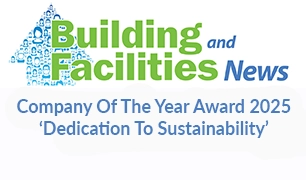There has been a great deal of talk about the decarbonisation of this country but what has been the UK progress towards net zero so far?
A new progress report by the independent Climate Change Committee (CCC) has been damning. Despite the UK having a solid Net Zero strategy in place, the CCC has identified “major failings” in government delivery programmes designed to achieve climate change in the UK by 2050. The CCC notes that once again emissions are on the rise, up 4% in 2021 compared with 2020, which it directly associates with the economy beginning the process of post-COVID-19 recovery.
From a lack of tangible progress in policy ambition and slow progress on wider enables, the UK is in danger of failure in building on the apparent success of COP26 last November. While the UK presidency of the UN COP26 climate summit strengthened long-term global ambition and introduced new mechanisms to support delivery it has not yet prioritised making those new mechanisms work in practice. Greater emphasis and focus now must be placed on the delivery of the agreed emission path, with the caveat that not all policies will deliver as planned.
In response, the CCC progress report lists more than 300 recommendations that must be addressed between now and 2024 if the UK is to be successful in delivering net zero by 2050.
Following the Heat & Building Strategy for England, the CCC has called for more detail on the modelled pathway for low-carbon heat, and planned breakdown of funding announced in the Scotland Heat in Buildings Strategy; a coherent, long-term strategy for heat and energy efficiency in Northern Ireland; and further work to build on the plans set out in Net Zero Wales Carbon Budget 2. This should include policies to support low-carbon heating across all of the building stock.
In addressing the UK progress towards net zero the CCC identifies the need for a final policy plan for the market-based approach to low-carbon heat. This must include a clear explanation of how the obligation on manufacturers or energy suppliers will work, whether enabling legislation is required, and a timeline for implementation. It should also include details on how the Government will track whether the policy is driving the required market growth, and identify trigger points for further intervention (e.g. funding, regulation) if progress falls behind.
Missing The BUS
The current Boiler Upgrade Scheme, which can be used by small businesses as well as homes, requires an awareness campaign to drive demand, alongside an increase in available funding as required so that those who want a heat pump through the scheme can get one. This mirror’s findings from the Ground Source Heat Pump Association (GSHPA) that show the £450 million scheme is yet to deliver increased demand for heat pumps. According to Ofgem, during the period 23 May to 30 June 2022, only 169 vouchers were redeemed for <45kWth heat pumps (air source and ground source) and biomass heating. Off the back of this scheme, there remains a clear need to grow and upskill the workforce will support the Government’s pathways for low-carbon heat and energy efficiency and fill the skills gap identified in the Heat and Buildings Strategy.
Regulation & Enforcement
What is clear is that achieving change requires policy backed by mandated regulations. These include published targets for the roll-out from now until 2037 of heat pumps that do not use F-gases as a refrigerant, plus plans to phase out boiler replacements in off-grid non-residential buildings from 2024, and consult on introducing an earlier phase-out date for gas boilers in non-residential buildings.
Consultation is also required on a full technical specification for the Future Buildings Standard in 2023 to ensure the new standards are implemented by 2025. The intent is to see the delivery of new buildings which are resilient to climate change impacts, with ultra-high energy efficiency standards and low-carbon heating. This should be supported by improvements to the Energy Performance Certificate (EPC) and Standard Assessment Procedure (SAP) framework to ensure they drive the deployment of the necessary energy efficiency and low-carbon heat. Proposals are also put forward for minimum EPC in owner-occupied commercial buildings. Minimum EPC standards must also be enforced, including consideration of additional measures to monitor compliance of qualified installers, approved inspectors and EPC assessors, and providing local areas with sufficient resources to undertake assessments.
Public Sector Charged With Taking The Lead
To meet ambitious Government targets and show leadership in public sector buildings decarbonisation, public sector organisations, including those not captured by the Greening Government Commitments, must have the information and support they need to: monitor their energy use, set targets and reduce emissions from their estate over the next five years.
All public sector buildings should halve emissions by 2032.
This requires the development and implantation of plans for a zero carbon remit. To do this will require an increase in multi-year funding commitments for decarbonisation in public buildings up until 2025 to match the Government’s ambition for public sector decarbonisation and commit to continuing similar levels of funding beyond 2025. Proportionate mechanisms should be put in place to review overall progress and recurring challenges. To achieve this the government needs to publish the completed carbon and water management plan and the sustainability management plan that is under development. The plan should include clear pathways for reaching Greening the Government Commitment targets for halving emissions from public buildings.
The assessment of whole-life carbon and material use in private and public construction projects should be mandatory by 2025, to enable minimum standards to be set. The whole life carbon assessment should be sought at the planning stage to enable efforts to reduce embodied carbon and materials.
Strategy & Assessment For Small To Medium Commercial Organisations
Small and medium-sized enterprises (SMES) require improved engagement, particularly high-emission, low-engagement businesses. The recommendation is for a package of measures including a one-stop shop for SMEs to get decarbonisation advice with a carbon footprinting tool, develop a strengthened low-carbon advisor/auditor role for SMEs and develop an effective financing strategy to support SME decarbonisation.
This should be driven by a performance-based rating scheme with a published timeline for offices and other building types, outlining how timelines correspond to the expected emissions reduction trajectory of commercial buildings in the 2020s.
The Government needs to rapidly communicate findings on SME energy efficiency from the new research mentioned in the Heat and Buildings Strategy, and outline plans to ensure SMEs are able to invest in retrofit and energy efficiency measures. This research should support the publishing of clear plans to move towards in-use performance metrics for buildings, with clear timescales and responsibilities. The CCC concludes this should lead to the consideration for moving towards Green Buildings Passports.
Green Needs Green
Recognising that the transition needs to scale up over this decade and that stable funding provides certainty to businesses, and public bodies, what is clear from the progress report is that there remains a lack of comprehensive vision to leverage private financing for the retrofit of UK businesses, with consideration to include green stamp duty, green mortgages, energy as a service, and property-linked finance. In order for successful UK progress towards net zero the Boiler Upgrade Scheme, Local Authority Delivery Scheme, Energy Company Obligation and public sector decarbonisation must continue to be fully funded as required beyond the spending review period.
















